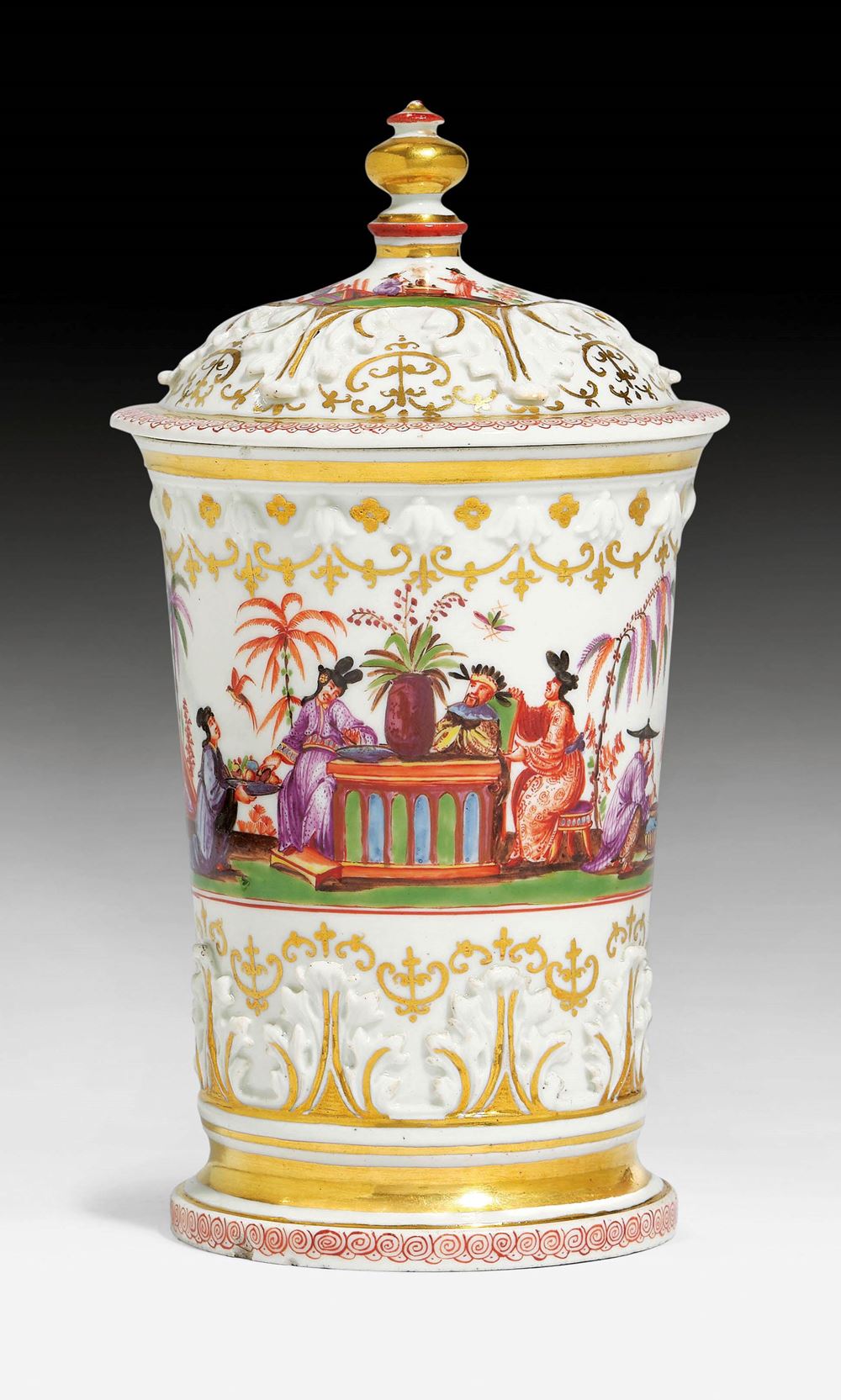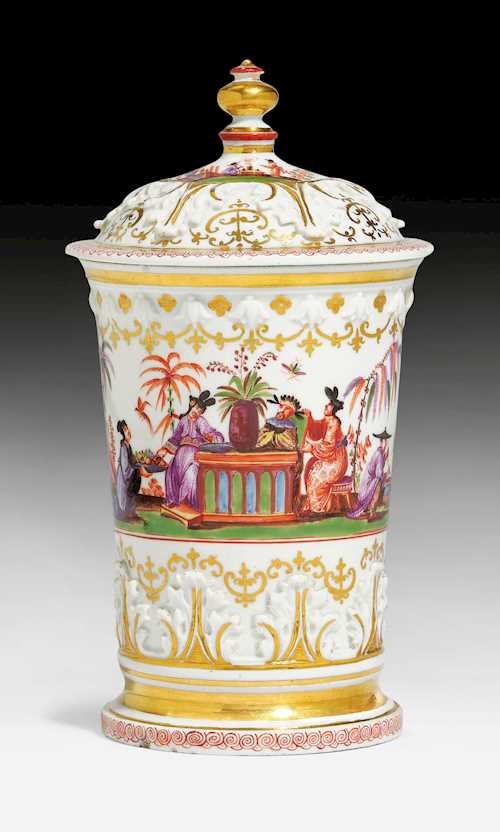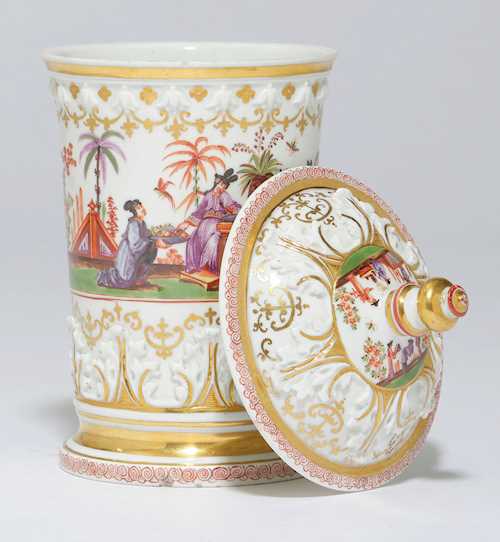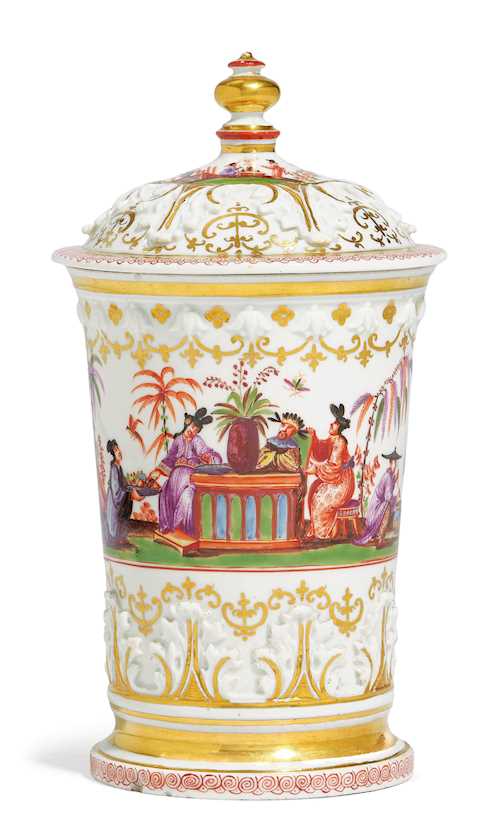
Lot 1081* - A204 Decorative Arts - jeudi, 30. mars 2023, 10h00
LIDDED BEAKER WITH CHINOISERIE DECORATION
Provenance:
- Art Dealer, Galerie Röbbig, Munich.
- Christie's London, Centuries of Style, 3 June 2014, Lot No. 20.
- Aristocratic private collection, Southern Germany.
An example for the porcelain model of offer was made of Böttger stoneware with additional female masks by the Dresden Court Silversmith Johann Jakob Irminger as early as 1710-13 (C. Boltz, Keramos 2000, Ill. 31).
In addition to Höroldt, who arrived at the Meissen Manufactory in 1720, a group of exceptional painters belonged to the workshop. The most important were Johann Georg Heintze since 1720, Johann Christoph Horn since 1721, Augustin Dietze since 1723, Bonaventura Häuer since 1724, Adam Friedrich von Löwenfinck and Conrad Christoph Hunger since 1727 (U. Pietsch, Höroldt, 1996, p.13). Philipp Ernst Schindler, who came to Meissen in 1725, was one of the most famous painters of the Manufactory, many chinoiserie-decorated items are attributed to him, some of which are signed (S. Bursche, Keramos 161/1998, pp. 39-48).
Even if most of the chinoiserie scenes - after graphic models, today known as Schulz-Codex - are generally attributed to the workshop, in the best case to Höroldt himself, or to Schindler, it can be assumed that other painters were also involved in the numerous early items painted with chinoiserie decorations. D. Lübke discussed new attributions in 2008 (Schindler? Horn? - oder doch Dietze?, Keramos 200/2008, pp. 3-20).
Comparable models: U. Pietsch, Frühes Meissener Porzellan, Exhibition Catalog Hetjens Museum Düsseldorf, 1997, No. 8; Dr. Erika Pauls-Eisenbeiss, German Porcelain of the 18th Century, I, pp. 432ff.; Bonhams London, Fine European Ceramics, 3 December 2008, Lot No. 104 with regard to a pair of masterly "tobacco tins" painted by Augustin Dietze.
CHF 16 000 / 24 000 | (€ 16 490 / 24 740)
Vendu pour CHF 27 140 (frais inclus)
Aucune responsabilité n'est prise quant à l´exactitude de ces informations.





